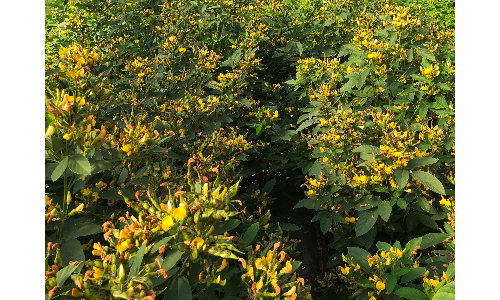Two Indian scientists to receive prestigious agriculture research award
 गाँव कनेक्शन 22 May 2018 9:07 AM GMT
गाँव कनेक्शन 22 May 2018 9:07 AM GMT

MALAWI: Two Indian scientists whose work will have a pathbreaking impact across global agriculture have been named for a prestigious research award by the International Crops Research Institute for the Semi-Arid Tropics (ICRISAT). The scientists -- both women -- urged more women to join the field of scientific research despite gender biases.
Dr Mamta Sharma and Dr Pooja Bhatnagar-Mathur are joint recipients of the Doreen Margaret Mashler Award for 2018, for significant work in their respective research fields of plant pathology and biotechnology. The award is ICRISAT's highest honour for research and was announced by its Governing Board.
"The next few decades will see cutting-edge technologies in science for huge opportunities in India. If youngsters pursue a career in science with focus, perseverance and planning, they can become leaders of innovation and address the unmet needs of the country," Dr. Sharma said. "Women, whether in science or elsewhere, work extra hard to overcome inherent gender biases to prove themselves. Rather than special incentives, women can be provided an environment to allow effective working."
रिसर्च : वातावरण में बढ़ती कार्बन डाइऑक्साइड की मात्रा फसलों में बढ़ा सकती है कीटों का प्रकोप
Dr Sharma encourages young women to take up a career in science. She specializes in epidemiology of plant diseases and pathogens, focusing on disease-resistant breeding in chickpea and pigeonpea, two of ICRISAT's mandate crops. In 2017, she led the team that developed the Loop-Mediated Isothermal Amplification (LAMP) method to identify a pathogen affecting chickpea and over 500 crops globally. She also established the Center of Excellence on Climate Change Research for Plant Protection to address effects of climate change on insect-pests and diseases.
History of food rooted in old, extraordinary agriculture traditions
More Stories




